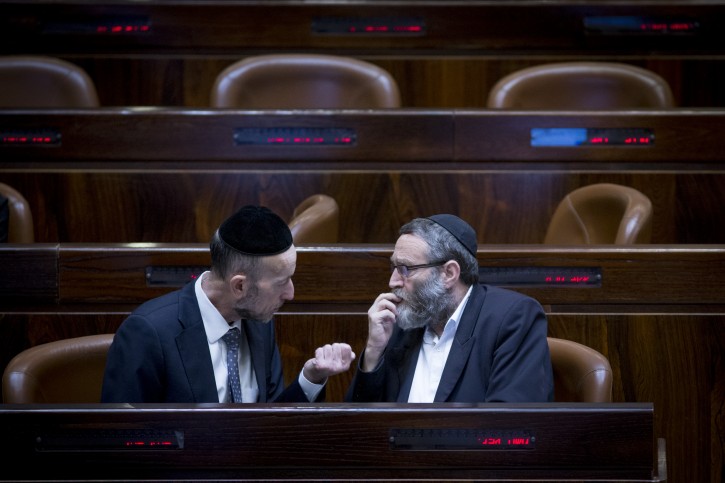
Jerusalem – The High Court of Justice has ordered haredi political parties United Torah Judaism and Shas, along with the Party Registrar, to explain within 75 days why haredi parties prevent women from standing for election to the Knesset, in response to two legal suits on the issue.
The petitions come against a background of increasing pressure on the haredi parties over their policy, which claims to be based on religious principles, not to allow women on their electoral lists for general elections.
One petition against Degel Hatorah and Agudat Yisrael, the two component parties of UTJ, was submitted by attorney Tamar Ben-Porat, joined by 12 women’s rights groups, including The Rackman Center for the Advancement of Women, the Center for Women’s Justice, Wizo and Naamat.
Another petition was filed by the Rackman Center in the name of haredi women’s rights activist Ruth Colian against Shas.
During the last election in 2015, Colian attempted to gain a spot on Shas and United Torah Judaism’s electoral list, but was refused by both parties.
She subsequently formed her own party, Ubezchutan, aimed at electing female haredi representatives to the Knesset, but received just a handful of votes.
Colian claimed at the time that the refusal by mainstream haredi media outlets to publish her party advertisements denied her access to her core audience of female haredi voters.
The petitioners are requesting that the High Court either order the haredi parties directly to abolish the clauses in their party regulations or to require the Party Registrar to do so.
A failure to abolish these clauses, argue the petitioners, would give the imprimatur of the state to the notion that women are not deserving of equal rights, and because of their gender are not able to be party members.
“It is unthinkable that the regulations of a party which is part of the governmental system in the State of Israel, a part of the legislature and a body that works at the heart of the public realm, will include a degrading clause that discriminates against women,” said Prof. Ruth Halperin Kedari, chairwoman of the Rackman Center, following the court’s interim order to the haredi parties.
Rackman Center director Galit Shaul noted that it would still be possible for the haredi parties to remove the clause from their regulations and still not appoint a woman to their electoral lists, since they do not hold primary elections for spots on the list.
She said, however, that simply removing the clauses from the party regulations would be a significant symbolic victory in ensuring that such discriminatory policies are not a formal part of Israeli politics.
As reported by Vos Iz Neias
